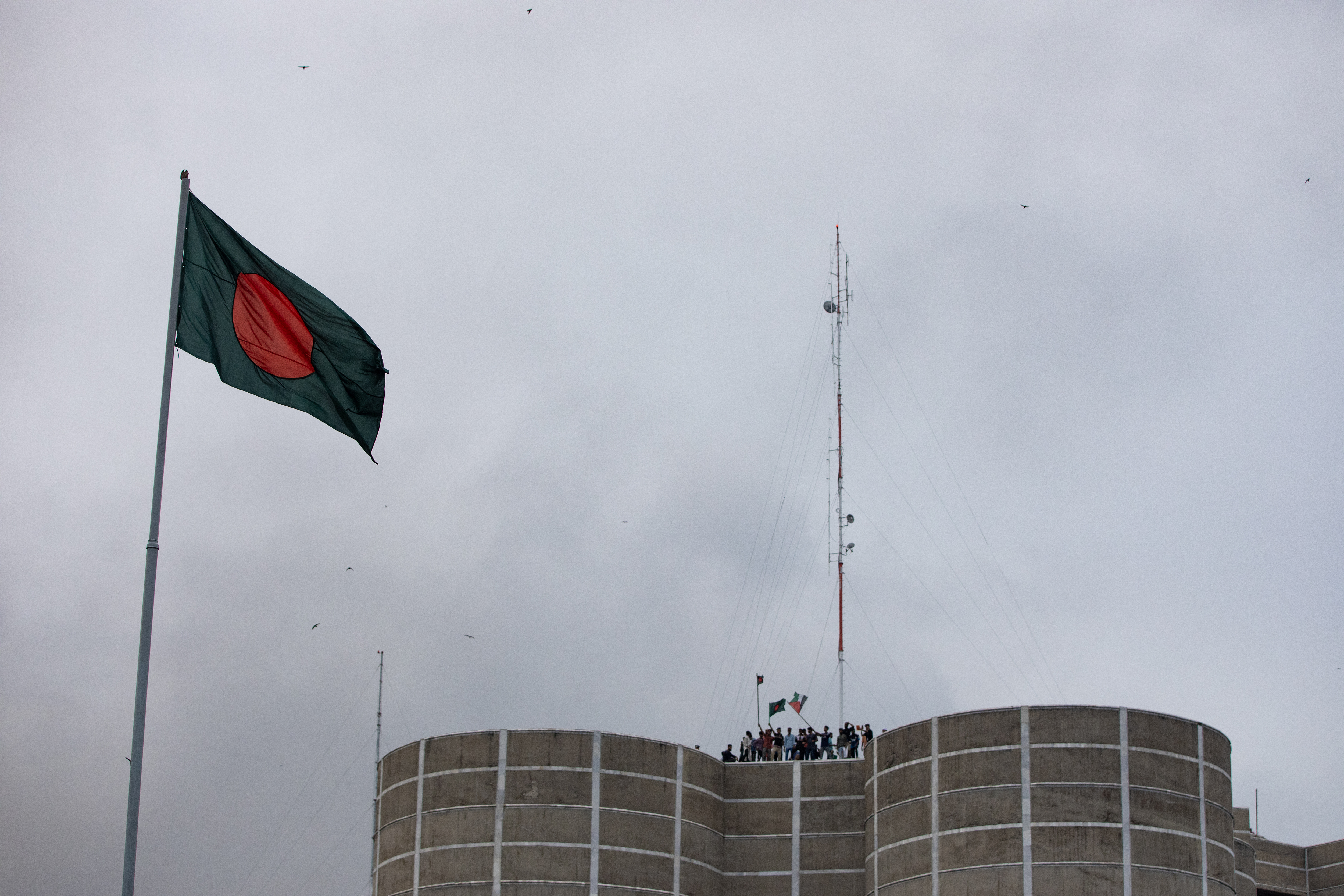We must focus first on constitutional process, not content

In the first public event following his appointment as special assistant to Chief Adviser Prof Yunus, Mahfuj Alam repeatedly invoked the idea of a new people's will, observing that "a new populace" has emerged and the will of this new populace must shape the future of Bangladesh. The event was convened to discuss constitutional issues. In this piece, we make two overarching points regarding constitutional design, which we respectfully urge the interim government to consider.
There is already a proliferation of Dhaka civil society forums discussing the content of a new constitution, as well as debate about whether we need an altogether new constitution or whether we should merely amend the existing one. But the focus right now should not be on content, nor on how drafting should take place or whether we start from scratch or merely amend. Instead, attention must concentrate on establishing a "process" towards a ratified final constitution and announcing that process as soon as possible. A new era with a new populace doesn't just need a new constitutional dispensation but a new way of arriving at such a dispensation.
In a 2018 referendum, the Irish people voted to repeal a constitutional prohibition against abortion. The issue of abortion is irrelevant to this discussion: What took place before Ireland decided to remove the ban is what concerns us here, as well as what "didn't" take place after the decision.
Before the referendum, over the course of a year, Ireland held a number of televised citizens' assemblies, appropriately moderated, to discuss several issues, including, for example, abortion and fixed term parliaments. What did "not" take place after the referendum, in which 39 out of 40 constituencies voted to make abortion legal, was public acrimony or ongoing grievance about a decision taken on a potentially incendiary topic in a deeply Catholic country. Everyone understood that because of the process the referendum reflected, crucially, an informed will of voters.
By contrast, in referenda in 2022 and again in 2023, the Chilean people twice rejected different proposals for a new constitution, despite the fact that the proposals would have replaced a widely reviled constitution inherited from the era of the dictator Augusto Pinochet. The consensus of expert observers is that, fatally, the draft constitutions had been put together by cliques, the first-time comprising actors on the political left and the second actors on the right, who doubtless believed themselves acting in the service of the nation but who were, in fact, far removed from the concerns of the people.
There is broad consensus among scholars of constitutional engineering about the importance of public involvement, reflecting also a trend in such involvement in practice around the world. Since a constitution consists of higher laws standing above laws passed by the legislature, its importance is paramount. A new constitution should not be written exclusively by the Dhaka elite, without discussion among and input from the public, starting at the very beginning. A constitution founded on the widest practicable public engagement is more likely to achieve the greatest legitimacy, thereby making it, among its other virtues, more robust in the face of attempts to subvert it in years to come.
Scholars of constitutional process and design describe the process we propose as an "hourglass model." Like an hourglass, it is wide at the top, with inputs from the public, after public discussions, and from civil society. It then narrows in the middle to a deliberating and preliminary drafting body, before widening again into the public, either in the form of an elected constitutional assembly, or a referendum, or a combination. A ratification stage follows. The mechanism of public engagement must be genuinely substantive and should not be capable of being regarded as mere window-dressing.
We note that a process of public engagement can and should apply whether a constitution is being written from scratch or the existing constitution is to be revised.
In all these elements there are many details to consider at each level of process design. For example, if public discussion groups are to be held at the upazila or other levels, training must be provided to moderators, to introduce topics and keep the discussion focused on them. The interim government could publish a video primer on the topics to cover, being careful not to unduly limit the range of legitimate public discussion. At the stage of a deliberating and preliminary drafting body, there will be questions regarding its composition, of course. Should such body be required first to provide a review of the public and civil society submissions? As for a constitutional assembly, who should sit in it? Should former and current elected officials be barred from the assembly and should assembly members be barred from holding future office? Such questions themselves could form part of public discussions.
In process design, what are called upstream and downstream constraints will need consideration. The work of actors downstream, such as a deliberating body, will be shaped or constrained by what the public and civil society provide them. Equally, since the public and civil society—the actors upstream—will know that what they submit will go through a deliberating and preliminary drafting body before coming to a constitutional assembly or referendum, they will shape their submissions accordingly. Such effects will have to be considered carefully.
These are only some of the many issues that will need consideration. Importantly, we should bring to bear learning gained from relevant experience around the world.
All this discussion of detail neatly brings us to the second overarching point we wish to make. To run the process we describe involves managerial skill, more so than legal expertise. For too many years, we have endured an autocratic regime that has degraded the standards of our administrative sector, our civil service. It grieves us to acknowledge this. Constitution-building that is inclusive of the public will require us to draw in the best and the brightest. Even if a member of the great and the good stands as figurehead, the work—including day to day decision-making—will have to be done by people with recognised talent for getting things done. That may mean drawing in people from outside the usual channels.
In future pieces, we address other matters, constitutional and otherwise. But we lead with this piece because it is vital that the interim government address process issues swiftly and announce a roadmap, with some detail and not mere generalities, outlining what we will all do to take a new Bangladesh with a new populace to a new constitution.
Zia Haider Rahman, a former international human rights lawyer and head of research at Transparency International Bangladesh (TIB), is the author of the novel In the Light of What We Know. His X handle is @ziahaiderrahman.
Manzoor Hasan, a barrister, is executive director of Centre for Peace and Justice, BRAC University, founding executive director of Transparency International Bangladesh (TIB), and former chair of UNCAC Coalition. His X handle is @Manzoor_Hasan.
Views expressed in this article are the authors' own.
Follow The Daily Star Opinion on Facebook for the latest opinions, commentaries and analyses by experts and professionals. To contribute your article or letter to The Daily Star Opinion, see our guidelines for submission.
 For all latest news, follow The Daily Star's Google News channel.
For all latest news, follow The Daily Star's Google News channel. 

Comments